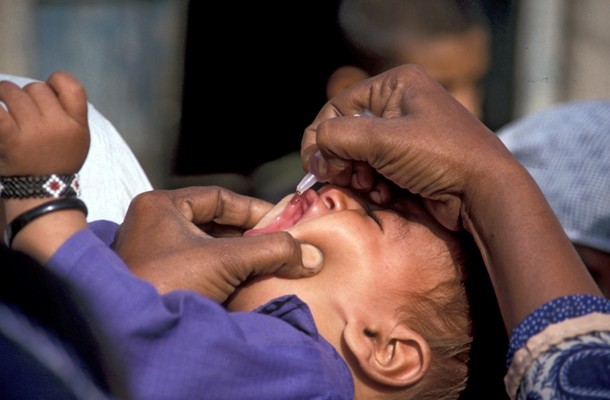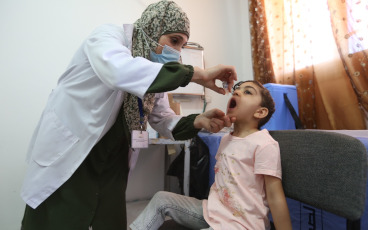Pakistan Announces Sweeping Changes to Polio Eradication Effort
Prime Minister puts in place urgent measures to address drastic rise in new cases; appoints new Polio Focal Point to oversee effort

On 24 November, the Government of Pakistan announced major new changes to the country’s polio eradication effort, as part of urgent measures to address this year’s drastic new rise in polio across the country.
At a meeting of the National Task Force on Polio Eradication chaired by His Excellency Prime Minister Syed Yusuf Raza Gilani, a strengthened and reinvigorated National Emergency Polio Action Plan was launched. Launched earlier this year by His Excellency President Asif Ali Zardari, the Plan had so far failed to be fully implemented at the critical district and Union-Council levels.
Discussions led by the Prime Minister focused on concrete steps needed to ensure the Plan’s rapid and full implementation. As a first step, the Prime Minister announced the appointment of Ms Shahnaz Wazir Ali as the Prime Minister’s Focal Person for Polio. Ms Wazir Ali has already had a long and successful public service career, being Special Assistant to the Prime Minister on Social Sector and member of the national assembly of Pakistan. Her appointment as the Prime Minister’s Focal Person for Polio was widely applauded by partner agencies at country, regional and global levels.
At the same time, the Prime Minister clearly underlined that activities and accountability needed to be tracked and monitored at the provincial level. To this effect, the Chief Minister of Khyber Pakhtunkwa (KP), Governor of KP, Chief Minister of Sindh and Balochistan’s Provincial Minister for Law all provided clear assurances that their offices’ would provide greater oversight to ensure that polio is rapidly eradicated. Senior officials will be appointed by the Chief Ministers and the Governor of KP for each province and the Federally Administered Tribal Areas (FATA); Chief Ministers and the Governor of KP will personally review the latest epidemiology on a monthly basis and take corrective measures as necessary; a primary focus will be on ensuring full accountability of district and Union-Council level staff, to be monitored by provincial Chief Ministers and the Governor of KP. The implementation of the National Emergency Polio Action Plan will be lead by designated Union-Council Medical Officers, and supported by partner agencies (WHO and UNICEF) with more than 500 technical staff.
These sweeping changes come at a critical time to Pakistan’s polio eradication effort. This year, Pakistan accounts for nearly 30% of all cases worldwide, and is affected by nationwide spread of the virus. It is also the location of the only wild poliovirus type 3 case in Asia this year, a strain on the verge of elimination on the continent. And virus from Pakistan earlier this year spread to China, to cause an outbreak there.
All of this has significantly contributed to “all eyes being on us”, the Prime Minister said, with reference to polio eradication being a matter of global prestige.
To ensure a strong start to the relaunch of the National Emergency Polio Action Plan, Special Secretary Shahnaz Wazir Ali has already put in place concrete actions to rapidly address major operational challenges ahead of the next supplementary immunization activities (SIAs) to be launched on 19 December. Focus is on strengthening microplans, religious leader engagement and increased partnerships with media organizations to increase social mobilization outreach. Partnerships with NGOs operating in high-risk areas will be scaled-up, and monitoring of SIAs will be put in place through universities based in urban areas.
Closing the extraordinary meeting, the Prime Minister reiterated his commitment to ensuring a polio-free Pakistan will be achieved by end-2012, and reminded all participants of their very clear roles in assuring success.












